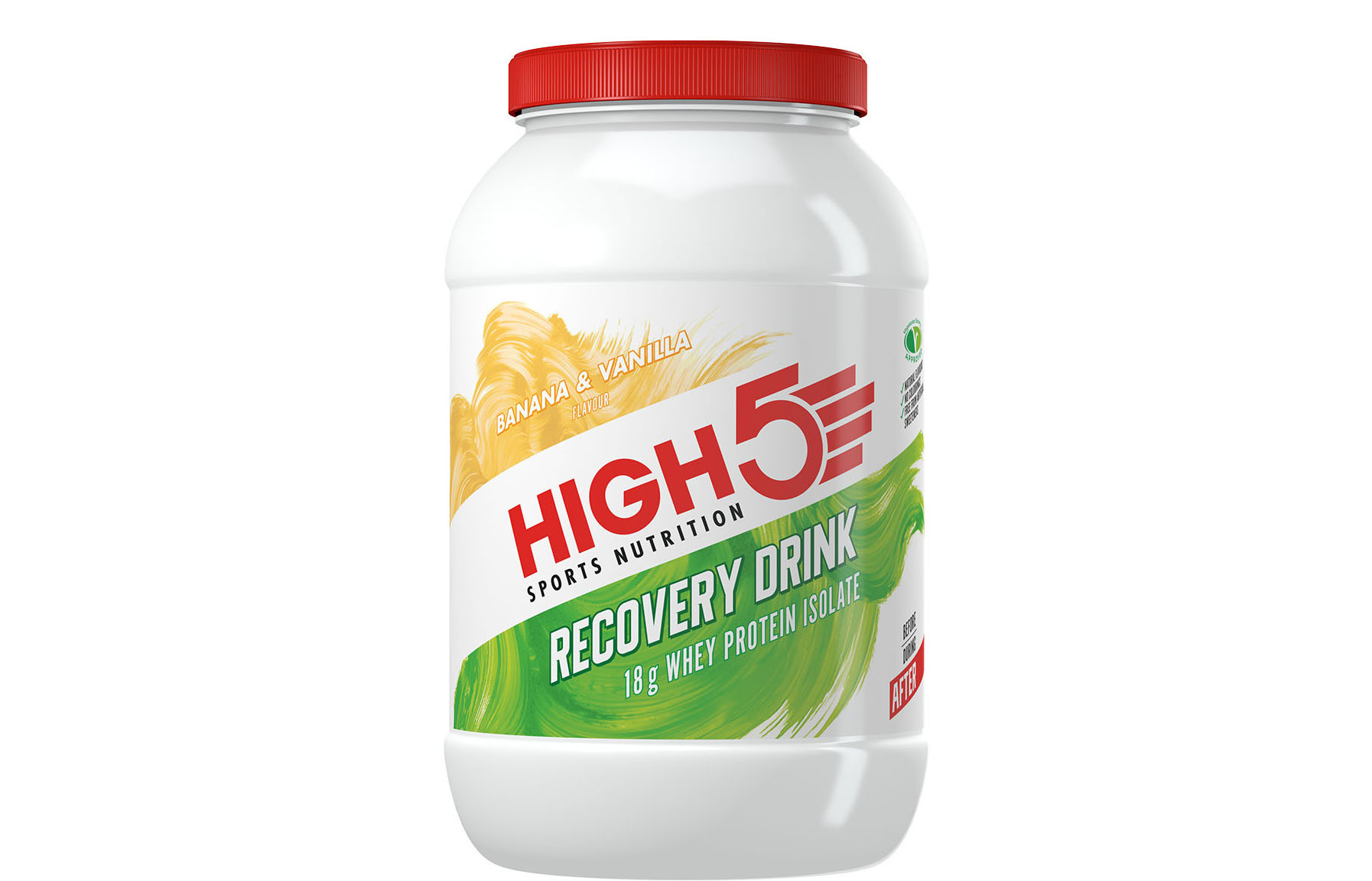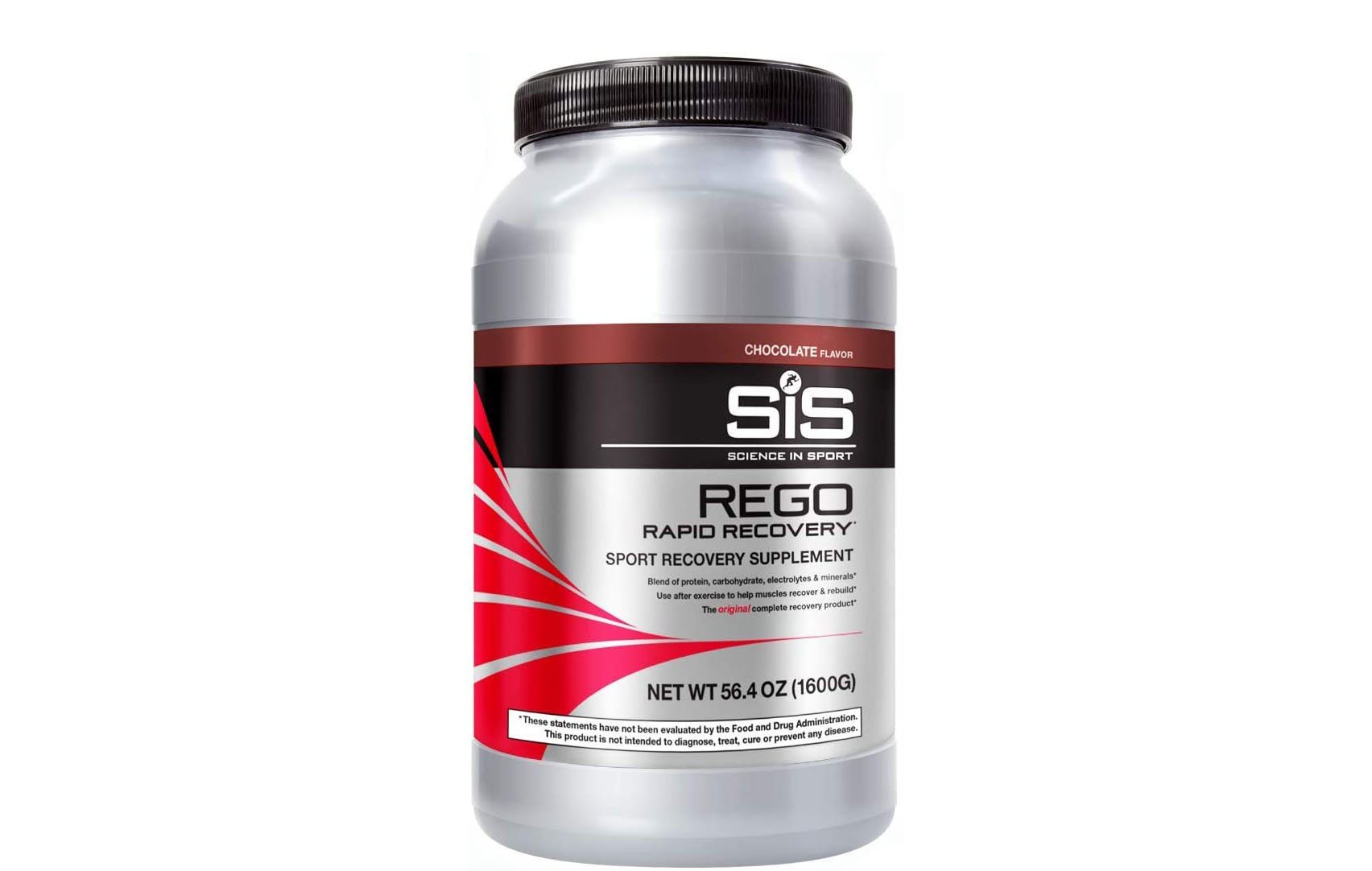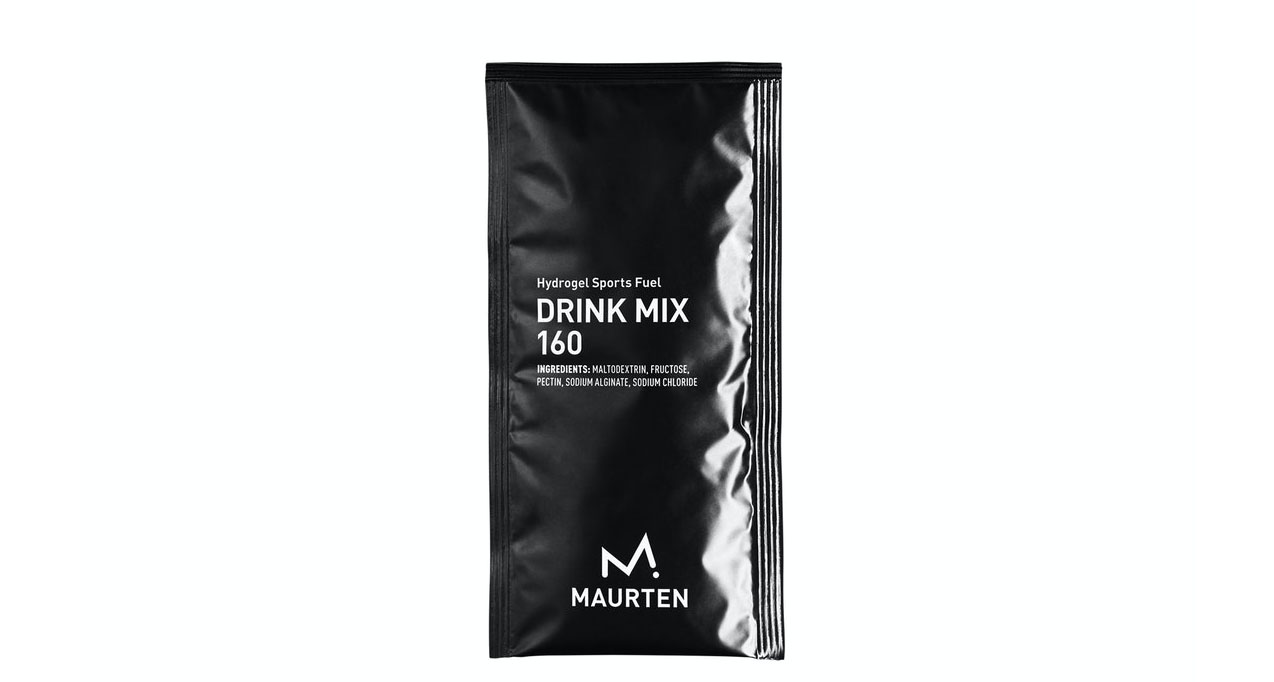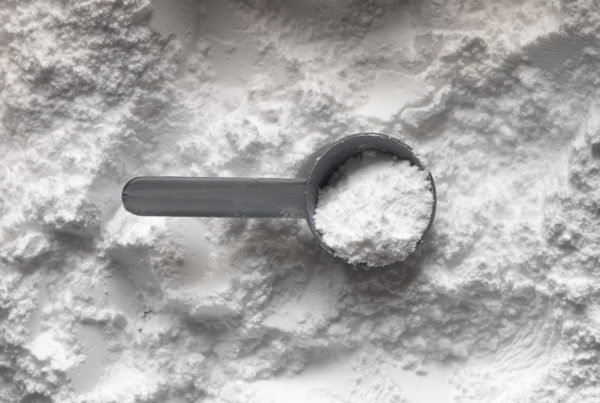How to make the best use of sports recovery drinks?
1. Why is recovery so important?
2. How to make post-workout recovery more effective?
3. The best natural post-workout recovery drinks
4. The best ready-made post-workout recovery drinks
1. Why is recovery so important?
Workout, depending on the type and intensity with which we perform it, expends a certain amount of energy and forces our muscles to effort. During exercises, we lose many vitamins and electrolytes. This is when oxidative stress and damage to muscle fibers occur, which, in order to properly synthesize protein, need time to regenerate. Depending on the intensity of physical activity, we should spend 24 to 48 hours resting after training. Such a time-space will prevent negative health effects like: overtraining, injuries, loss of strength, or muscle pain. This causes a problem especially among people who train endurance sports (e.g. cycling) not only professionally, but also enthusiasts who often practice them without keeping an appropriate time interval.
2. How to make post-workout recovery more effective?
One of the ways to keep post-workout recovery at the right level is a properly selected nutritional strategy (the right amount of carbohydrates and protein) and the right level of hydration before, after, and during the training session. To learn more about rehydration,
I encourage you to read this article: Hydration for Cycling
If the training sessions are not too intense, mineral water is completely enough. However, when our exercises require more effort, we expand large amounts of muscle glycogen, and we lose valuable vitamins and electrolytes with sweat – the key is to supplement them in a more effective way.
3. The best natural post-workout recovery drinks
There are many ready-made recovery drinks available on the market committed for consumption after training. You must know that such “ready-made products”, apart from the necessary substances, very often contain many artificial additives, such as: colorings, preservatives, and sweeteners. For this reason, I would like to represent natural ways to replace lost carbohydrates and electrolytes and make recovery faster and more effective. Some of them may even surprise you.
a) Chocolate milk
 This seemingly unremarkable drink, the taste of which we enjoyed in childhood, is not only a sweet snack. It turns out that chocolate milk contains: simple carbohydrates (replenishing glycogen stores), protein (along with 8 essential amino acids), water, minerals (including calcium, magnesium), vitamins (including D3), and other bioactive substances (including polyphenols, caffeine, theobromine). Thanks to that, it can fulfill the criteria of an ideal recovery drink [1,4].
This seemingly unremarkable drink, the taste of which we enjoyed in childhood, is not only a sweet snack. It turns out that chocolate milk contains: simple carbohydrates (replenishing glycogen stores), protein (along with 8 essential amino acids), water, minerals (including calcium, magnesium), vitamins (including D3), and other bioactive substances (including polyphenols, caffeine, theobromine). Thanks to that, it can fulfill the criteria of an ideal recovery drink [1,4].
Cocoa contained in the drink is a valuable source of polyphenols (mainly flavonoids). These compounds exhibit an antioxidant effect, have a positive influence on the cardiovascular system, reduce inflammation, reduce insulin resistance, and lower blood pressure [2].
Magnesium in cocoa is essential for the metabolism of carbohydrates, proteins, and lipids, as well as for nerve conduction and proper muscle contraction [3].
Chocolate milk, thanks to the caffeine and theobromine content, also directly stimulates the central nervous system, which is another great advantage.
You can easily prepare chocolate milk at home:
- 300 ml of low-fat milk
- 5 cubes of dark chocolate or 15 g of dark cocoa
- 10 g of honey
- optionally cinnamon or cardamom
- Heat the milk and crumble the chocolate.
- Add chocolate pieces, honey, and spices to the warm milk.
b) Tart cherry juice
Beneficial use in post-workout recovery is also found in tart cherry juice (special species – Montmorency).
This kind of cherries are extremely rich in ingredients like antioxidant and anti-inflammatory properties (vitamins, minerals, and other compounds such as quercetin and anthocyanins). The fruits of this plant are used, among others, in accelerating recovery after intense physical workouts.
The beneficial properties of Montmorency cherries in sport have already been proven over 10 years ago at the University of Vermont and the Nicholas Institute of Sports Medicine and Athletic Trauma. It’s been evidenced that Montmorency cherries accelerated tissue regeneration and reduced their soreness compared to placebo.
Other reports showed the positive effects of cherry consumption on inflammation, oxidative stress, muscle soreness, and the fact that after consumption of tart cherry juice, muscle function continues to improve over the next few days after intense exercise [5]. Today, Montmorency Cherries are standardly used to boost recovery by athletes of various disciplines.
You can buy a ready-made 100% tart cherry juice concentrate or make it yourself:
- The tart cherries together with the pits are first boiled in water to soften and release juice and flavor.
- Then the liquid is drained (and kept) and sugar (or low carb sweetener) is added.
- The hot juice is poured into warm and clean bottles and they are closed with lids. The bottles filled with cherry juice are boiled in a canning pot with a rack on the bottom for 10 minutes.
- Keep in a cool and dry place for up to 1 year. Once a bottle is opened, store it in the fridge for up to 2 weeks.
c) Watermelon
This holiday fruit is not only a refreshment on a hot, summer day. It turns out to be a great post-workout drink. Thanks to the content of simple carbohydrates (1 one glass contains about 22 grams), we can supplement already used reserves of muscle glycogen.
Drinking watermelon juice also provides electrolytes such as magnesium and potassium, which are lost through sweat.
To complete your drink and replenish sodium, I recommend adding a pinch of salt to a glass of watermelon juice.
In addition, watermelon is a source of a unique blend of amino acids, including L-citrulline, known for its regenerative accelerating properties. Athletes of various disciplines supplement the citrulline also to reduce the effect of muscle sores [6]. Just one cup of watermelon juice contains approximately 600 mg of this unique amino acid.
d) Coconut water
Natural coconut water is commonly regarded as an isotonic drink. This means that when it comes to electrolyte content, it is similar to body fluids. It contains a high concentration of calcium, magnesium, and potassium, which makes it a natural alternative to commercial post-workout drinks. These minerals are essential for the proper function of our nerves and muscles, for the maintenance of normal blood pressure and bone health.
The big advantage of coconut water is the fact that compared to ready-made isotonic drinks, it contains much less sugar (only the naturally occurring one). Industrial drinks are often sweetened with glucose or, worse, with glucose-fructose syrup [7].
Coconut water by itself is not ideal for a high-intensity workout. It is because of the low content of sodium to keeps your body hydrated.
However, do not remove her from the list of recovery drinks. If you are planning a long-term training, add a pinch of salt to it – it will effectively replenish the sodium deficiency.
e) Coffee
Some studies report that consumption of coffee (espresso) after training can also have profitable effects, especially in terms of muscle recovery.
One study shows that consuming caffeine along with carbohydrates after training resulted in a 66% greater increase in muscle glycogen in athletes after four hours of intense training sessions. This can mean a reduction in the likelihood of delayed muscle soreness (DOMS), which most of you probably experience after intense training [8].
Is not fully known how this combination works – more research is required. Athletes who want to include such a method of regeneration should also observe their bodies and select the dose of caffeine individually.
To learn about other beneficial properties of coffee, please refer to the article: Cycling Coffee.
4. The best ready-made post-workout drinks
If you’re short on time to prepare natural recovery drinks, here are some great ready-made solutions:
a) High5 Recovery
 high-quality carbohydrate and protein cocktail for use after training. Available in convenient 60 g sachets of various flavors. It does not contain artificial flavors, dyes, sweeteners, and preservatives. The product does not contain lactose and gluten. It is also suitable for vegetarians.
high-quality carbohydrate and protein cocktail for use after training. Available in convenient 60 g sachets of various flavors. It does not contain artificial flavors, dyes, sweeteners, and preservatives. The product does not contain lactose and gluten. It is also suitable for vegetarians.
b) Sis Rapid Recovery Powder
 is a complete recovery product that should be consumed immediately after training. It implies a mixture of carbohydrates, proteins, and electrolytes with vitamins and minerals, thanks to which it quickly replenishes the reserves of muscle glycogen and electrolytes lost during training. A great advantage is the addition of leucine, which supports the synthesis of muscle proteins. Gluten-free, lactose-free, and nut-free, so it can also be used by allergy sufferers.
is a complete recovery product that should be consumed immediately after training. It implies a mixture of carbohydrates, proteins, and electrolytes with vitamins and minerals, thanks to which it quickly replenishes the reserves of muscle glycogen and electrolytes lost during training. A great advantage is the addition of leucine, which supports the synthesis of muscle proteins. Gluten-free, lactose-free, and nut-free, so it can also be used by allergy sufferers.
c) Nuun Sport: Electrolyte Drink Tablets
a product in practical tabs contain a small amount of sugar and calories (10 kcal per tabs). Rich in magnesium, calcium, and sodium. This product is also gluten, lactose, and soy-free.
d) Maurten 160 Drink Mix
 is the world’s first sports drink using the form of a hydrogel. Mixed with water, turns into a drink containing a high concentration of maltodextrin and fructose. This form is perfect for people with a sensitive stomach or those who react badly to high doses of carbohydrates. The product does not cause gastrointestinal discomfort.
is the world’s first sports drink using the form of a hydrogel. Mixed with water, turns into a drink containing a high concentration of maltodextrin and fructose. This form is perfect for people with a sensitive stomach or those who react badly to high doses of carbohydrates. The product does not cause gastrointestinal discomfort.
There are many ways to ensure the proper level of post-workout recovery. The main role here is to provide the right amount of lost electrolytes and replenish the muscle glycogen lost during work. Choose the option that suits you best and do not forget that other aspects are very important, such as: proper sleep, rest, a properly selected diet and training, stretching, or regular massages. All these acts will help you minimize the likelihood of negative effects of overtraining, such as muscle pain, fatigue, injuries, or contusions.
Resources
- Massaro M., Scoditti E., Carluccio M.A., Kaltsatou A., Cicchella A. Effect of Cocoa Products and Its Polyphenolic Constituents on Exercise Performance and Exercise-Induced Muscle Damage and Inflammation: A Review of Clinical Trials. Nutrients, 2019, 11(7), E1471,
- Amiri M., Ghiasvand R., Kaviani M., Forbes S.C., Salehi-Abargouei A. Chocolate milk for recovery from exercise: a systematic review and meta-analysis of controlled clinical trials. Eur J Clin Nutr, 2019, 73(6), 835-849,
- Decroix L., Soares D.D., Meeusen R., Heyman E., Tonoli C. Cocoa Flavanol Supplementation and Exercise: A Systematic Review. Sports Med, 2018, 48(4), 867-892
- Chocolate Milk as a Post-Exercise Recovery Aid, Jason R. Karp, Jeanne D. Johnston, Sandra Tecklenburg, Timothy D. Mickleborough, Alyce D. Fly, and Joel M. Stager
- Kenneth Vitale;Shawn Hueglin;Elizabeth Broad; Tart Cherry Juice in Athletes: A Literature Review and Commentary Current Sports Medicine Reports. 16(4):230–239, JULY/AUGUST 2017
- Martha P Tarazona-Díaz 1, Fernando Alacid, María Carrasco, Ignacio Martínez, Encarna Aguayo Watermelon juice: potential functional drink for sore muscle relief in athletes J Agric Food Chem. 2013 Aug 7;61(31):7522-8. doi: 10.1021/jf400964r. Epub 2013 Jul 29.
- Kelman i wsp., Comparison of coconut water and a carbohydrate-electrolyte sport drink on measures of hydration and physical performance in exercise-trained men, Journal of the International Society of Sports Nutrition 2012.
- David J. Pedersen et al. High rates of muscle glycogen resynthesis after exhaustive exercise when carbohydrate is co-ingested with caffeine. Journal of Applied Physiology, (in press)








